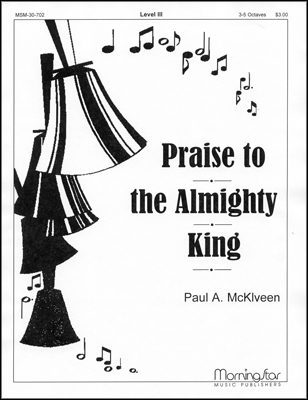- |
User Links
Praise To the God of Harvest

The God of harvest praise
Author: James MontgomeryPublished in 190 hymnals
Printable scores: PDF, Noteworthy ComposerAudio files: MIDI
Representative Text
1 The God of harvest praise;
In loud thanksgiving raise
Hand, heart, and voice;
The valleys laugh and sing,
Forests and mountains ring,
The plains their tribute bring,
The streams rejoice.
2 Yea, bless His holy name,
And joyful thanks proclaim
Through all the earth;
To glory in your lot
Is comely, but be not
God's benefits forgot,
Amidst your mirth.
3 The God of harvest praise;
Hands, hearts, and voices raise
With one accord;
From field to garner throng,
Bearing your sheaves along;
And in your harvest song
Bless ye the Lord.
AMEN.
Source: The A.M.E. Zion Hymnal: official hymnal of the African Methodist Episcopal Zion Church #239
Author: James Montgomery
 James Montgomery (b. Irvine, Ayrshire, Scotland, 1771; d. Sheffield, Yorkshire, England, 1854), the son of Moravian parents who died on a West Indies mission field while he was in boarding school, Montgomery inherited a strong religious bent, a passion for missions, and an independent mind. He was editor of the Sheffield Iris (1796-1827), a newspaper that sometimes espoused radical causes. Montgomery was imprisoned briefly when he printed a song that celebrated the fall of the Bastille and again when he described a riot in Sheffield that reflected unfavorably on a military commander. He also protested against slavery, the lot of boy chimney sweeps, and lotteries. Associated with Christians of various persuasions, Montgomery supported missio… Go to person page >
James Montgomery (b. Irvine, Ayrshire, Scotland, 1771; d. Sheffield, Yorkshire, England, 1854), the son of Moravian parents who died on a West Indies mission field while he was in boarding school, Montgomery inherited a strong religious bent, a passion for missions, and an independent mind. He was editor of the Sheffield Iris (1796-1827), a newspaper that sometimes espoused radical causes. Montgomery was imprisoned briefly when he printed a song that celebrated the fall of the Bastille and again when he described a riot in Sheffield that reflected unfavorably on a military commander. He also protested against slavery, the lot of boy chimney sweeps, and lotteries. Associated with Christians of various persuasions, Montgomery supported missio… Go to person page >Text Information
| First Line: | The God of harvest praise |
| Title: | Praise To the God of Harvest |
| Author: | James Montgomery |
| Meter: | 6.6.4.6.6.6.4 |
| Language: | English |
| Copyright: | Public Domain |
Notes
The God of harvest praise. J. Montgomery. [Harvest.] The original manuscript of this hymn is dated 1840. From Holland's Memoirs of Montgomery we find that in August, 1840, the poet.visited the widow of E. C. Brackenbury of Raithby Hall, Spilsby, Lincolnshire, and that on his return journey he wrote this hymn. On reaching Sheffield he gave the stanzas to Holland, saying, "You may do what you like with them." Holland adds, "The hint was well understood, and the author's townsmen had the pleasure of reading his beautiful harvest hymn the next day in the Sheffield Mercury" (Memoirs, vol. v. p. 407). It was also printed in the Evangelical Magazine of Nov. 1840, as "A Harvest Hymn for 1840," and dated "The Mount, Sheffield, Sept. 1840." Montgomery included it in his Original Hymns, 1853, No, 279, in 7 stanzas of 7 lines. It is a spirited hymn, and in an abbreviated form would be of some value.
-- John Julian, Dictionary of Hymnology (1907)
Tune
ITALIAN HYMNFelice de Giardini (b. Turin, Italy, 1716; d. Moscow, Russia, 1796) composed ITALIAN HYMN in three parts for this text at the request of Selina Shirley, the famous evangelically minded Countess of Huntingdon. Giardini was living in London at the time and contributed this tune and three others to Mar…
AMERICA (Thesaurus Musicus)
PERKINS (E. A. Perkins)


 My Starred Hymns
My Starred Hymns




